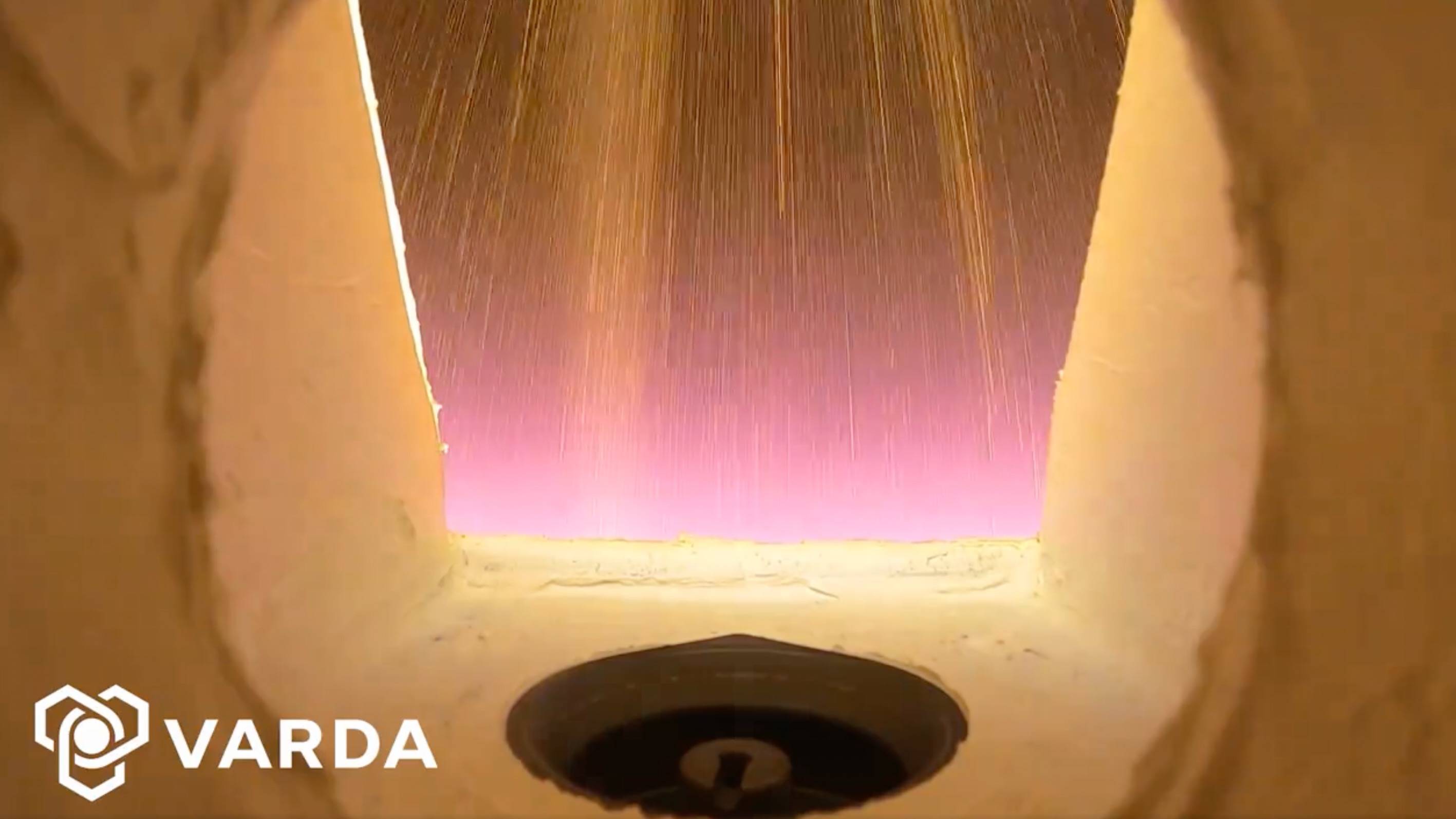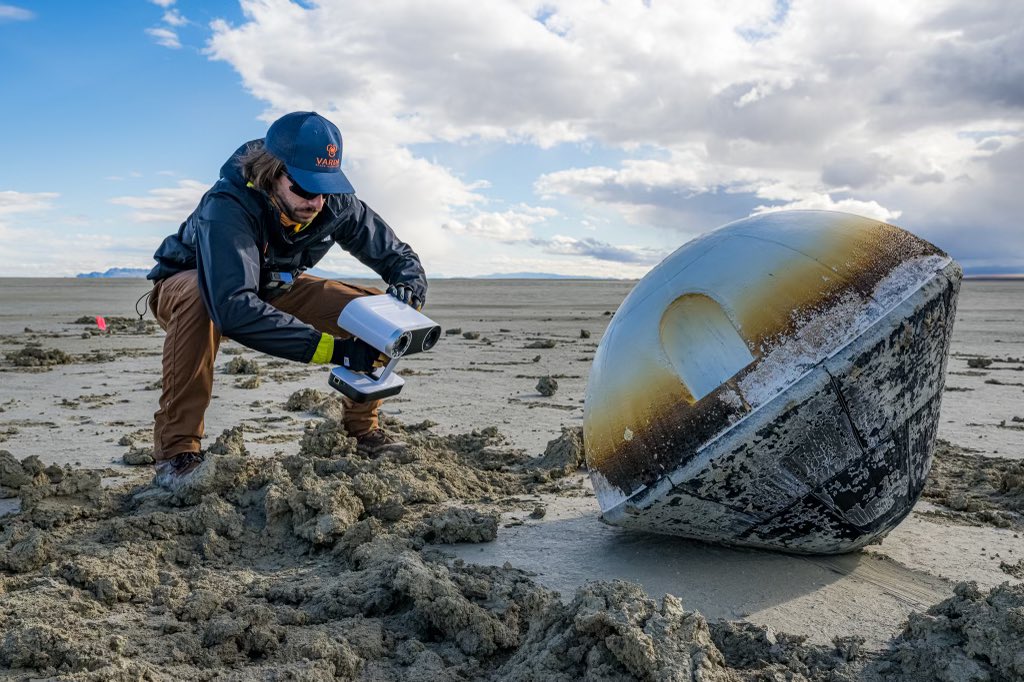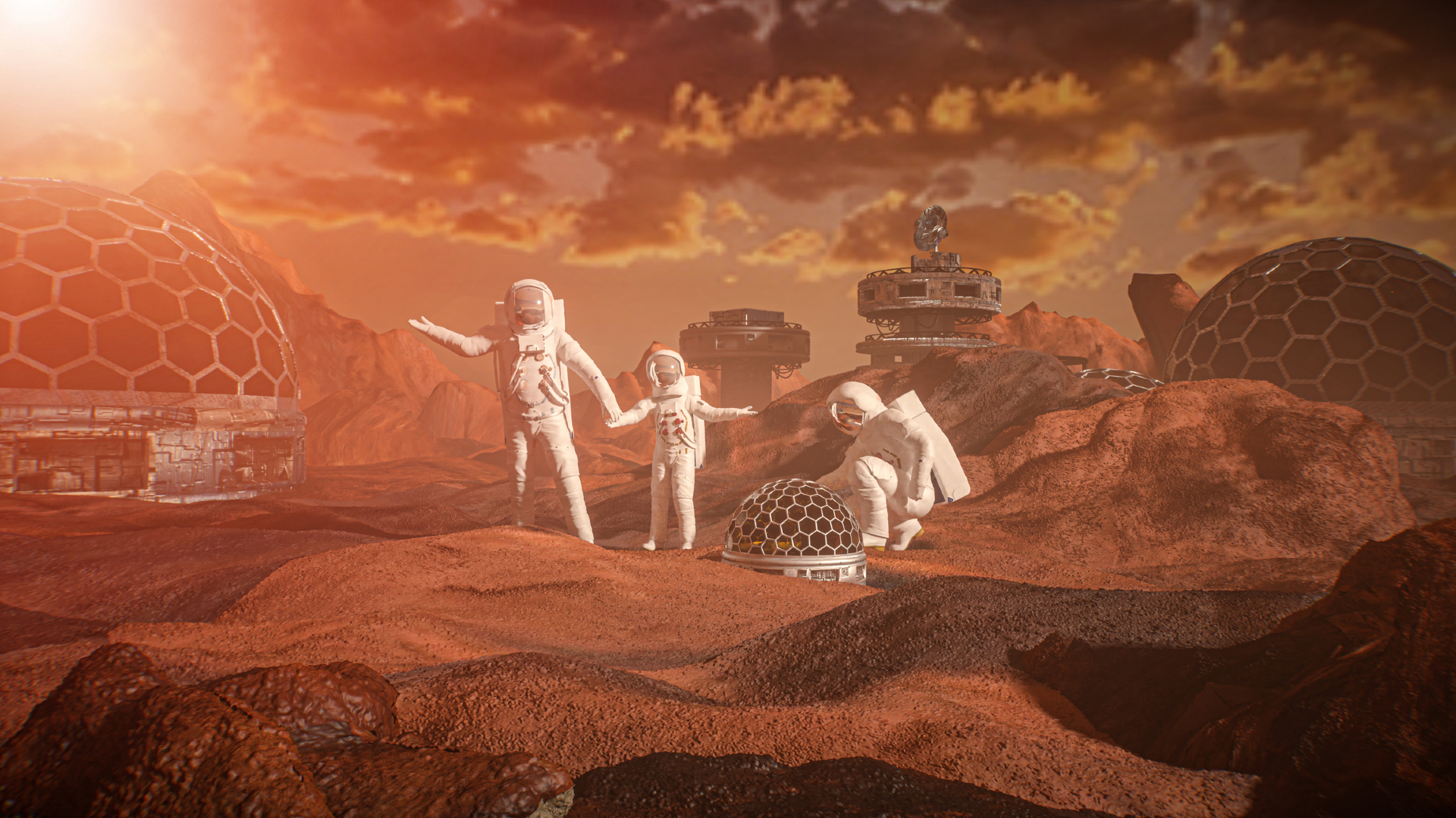'Them space drugs cooked real good:' Varda Space just made an HIV medicine in Earth orbit
Here's why it's a big deal.

Breaking space news, the latest updates on rocket launches, skywatching events and more!
You are now subscribed
Your newsletter sign-up was successful
Want to add more newsletters?

Delivered daily
Daily Newsletter
Breaking space news, the latest updates on rocket launches, skywatching events and more!

Once a month
Watch This Space
Sign up to our monthly entertainment newsletter to keep up with all our coverage of the latest sci-fi and space movies, tv shows, games and books.

Once a week
Night Sky This Week
Discover this week's must-see night sky events, moon phases, and stunning astrophotos. Sign up for our skywatching newsletter and explore the universe with us!

Twice a month
Strange New Words
Space.com's Sci-Fi Reader's Club. Read a sci-fi short story every month and join a virtual community of fellow science fiction fans!
On Feb. 21, after some seven months in space, Varda Space Industries' W-1 capsule successfully returned to Earth, carrying with it a unique payload: the HIV/AIDS medication ritonavir.
Varda Space seeks to autonomously manufacture pharmaceuticals in microgravity, a strategy that could ultimately reduce the cost of life-saving drugs — and, according to a new preprint paper, the company is one step closer to achieving that goal.
The W-1 mission sought to test the feasibility of making therapeutics in space, testing Varda's hardware off Earth for the first time. During its time in orbit, the W-1 capsule successfully crystalized the metastable Form III of the antiviral drug ritonavir, which then survived its return to Earth. The space-processed ritonavir has since been analyzed, and per an X post by Varda Space cofounder Delian Asparouhov, "[t]hem space drugs cooked real good."
Related: See Varda Space's private in-space manufacturing capsule's historic return to Earth in photos
The mission's data, now published in the preprint paper, also provides crucial information about the effects of spaceflight and reentry — such as vibration, acceleration, radiation and temperature — on the pharmaceutical-production process.
"By providing a detailed experimental dataset centered on survivability, we pave the way for the future of in-space processing of medicines that enable the development of novel drug products on Earth and benefit long-duration human exploration initiatives," states the paper's abstract.
While pharmaceuticals have been processed in microgravity on parabolic flights and the International Space Station, Varda Space's method aims to be more efficient and cost-effective, using uncrewed capsules that serve dual purposes as a mini-factory and a reentry vehicle.
Breaking space news, the latest updates on rocket launches, skywatching events and more!
The company now hopes to inspire others to consider the viability of space-processed pharmaceuticals. "Together with our hypergravity platform, Varda’s rapidly advancing the landscape for drug development using microgravity," wrote Varda Space in a thread on X. "Our mission is to now enable cost-effective high-cadence access to enable next-generation therapeutics."

Space.com contributing writer Stefanie Waldek is a self-taught space nerd and aviation geek who is passionate about all things spaceflight and astronomy. With a background in travel and design journalism, as well as a Bachelor of Arts degree from New York University, she specializes in the budding space tourism industry and Earth-based astrotourism. In her free time, you can find her watching rocket launches or looking up at the stars, wondering what is out there. Learn more about her work at www.stefaniewaldek.com.

